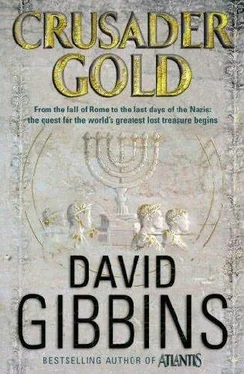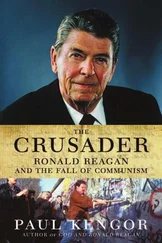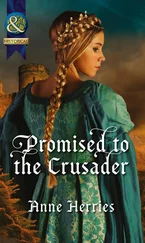David Gibbins - The Crusader's gold
Здесь есть возможность читать онлайн «David Gibbins - The Crusader's gold» весь текст электронной книги совершенно бесплатно (целиком полную версию без сокращений). В некоторых случаях можно слушать аудио, скачать через торрент в формате fb2 и присутствует краткое содержание. Жанр: Прочие приключения, на английском языке. Описание произведения, (предисловие) а так же отзывы посетителей доступны на портале библиотеки ЛибКат.
- Название:The Crusader's gold
- Автор:
- Жанр:
- Год:неизвестен
- ISBN:нет данных
- Рейтинг книги:3 / 5. Голосов: 1
-
Избранное:Добавить в избранное
- Отзывы:
-
Ваша оценка:
- 60
- 1
- 2
- 3
- 4
- 5
The Crusader's gold: краткое содержание, описание и аннотация
Предлагаем к чтению аннотацию, описание, краткое содержание или предисловие (зависит от того, что написал сам автор книги «The Crusader's gold»). Если вы не нашли необходимую информацию о книге — напишите в комментариях, мы постараемся отыскать её.
The Crusader's gold — читать онлайн бесплатно полную книгу (весь текст) целиком
Ниже представлен текст книги, разбитый по страницам. Система сохранения места последней прочитанной страницы, позволяет с удобством читать онлайн бесплатно книгу «The Crusader's gold», без необходимости каждый раз заново искать на чём Вы остановились. Поставьте закладку, и сможете в любой момент перейти на страницу, на которой закончили чтение.
Интервал:
Закладка:
“Remember, we’re taking pictures, grabbing anything we can, then leaving,” Costas said. “No time for science today.”
“For once I’m with you,” Jack said. “Now we’ve got the tree-ring date, all I need is to confirm what it is and prove its origin. A couple more wood samples and we’re out of there.”
“While you’re doing that I’ll use the probe to melt a pool above the target zone, just wide enough to turn this baby round and head for home. I can already taste that brew Ben’s got going for us.”
“Let’s do it.”
The two men hung side by side behind the rail as Costas reactivated the heating element, and seconds later it began to carve out the tunnel towards the target zone. The borer was now an autonomous vehicle, free of any tether to the outside world. It was drawing them along like a slow-motion underwater scooter, pressing farther and farther into the heart of the berg. Costas concentrated on keeping them above the ten-metre threshold for oxygen toxicity. As they progressed onwards Jack experienced a rush of elation, as if the oxygen and the adrenaline he had needed to overcome his anxiety had filled him with an overwhelming exhilaration. The tiny bubbles that gave the ice its milky opacity were fizzing in the meltwater, and he suddenly realised that the only life-sustaining properties around them had been released from the depths of the Ice Age. The air was the same as that breathed by their most distant human ancestors, hunter-gatherers who had roamed the edge of the ice sheets thousands of years before civilisation. Jack had known he would feel a frisson of excitement as their objective neared, but this was an unexpected sensation, the extraordinary feeling of swimming through a tunnel in time that would be impossible to experience anywhere else on earth.
“This is it.” Suddenly the white ice ahead of the borer gave way to a wall of ice as clear as glass, refracted deep blue as their headlamps shone into it. “Meltwater ice,” Costas said. “It’s the first we’ve encountered. This must be from one of those crevasses in the glacier Lanowski was on about.”
He drove the probe forward another two metres until the clear ice was all round them, and then came to a halt. As the swirl from the water jet subsided, Jack realised they were over a dark mass just beneath the ice, and he could see it curving off to either side through the blue haze. He sank down to the floor of the tunnel for a closer look, his headlamp pressed directly against the ice.
“Well, I’ll be damned.”
“What is it?” Costas released his hold on the probe and dropped down beside him, their bodies up against each other in the narrow space.
“Timbers,” Jack said excitedly. “A huge mass of them. It’s the side of a boat, a wooden ship. I can see rivets, rows of rusted iron rivets along planks. And the planks are overlapping, clinker-built. That does it. We’ve got ourselves a Viking longship.”
“Awesome,” Costas said, his eyes glinting through his mask at Jack. “And they’re black, carbonized, just like the sample they analysed from the ice core. There’s charring across this whole section of timber. This boat burned.”
“A burning ship on the ice,” Jack murmured. “Remember Kangia, his story of the ancient Inuit legend?”
“It explains the clear ice that cocoons this thing, the image they got with the sonar,” Costas said. “It’s not just meltwater from a crevasse that filled up and froze. I think this boat was burning when it sank into the ice. The ice and snow falling on the timbers must have put the fire out pretty quickly, but not before the heat melted this cavity in the glacier.”
“Before we pull out I want to get some sense of the dimensions,” Jack said.
“The target point’s eight metres ahead. That should give you what you need. Once there I’m turning straight back.”
Moments later Costas came to a halt again. The edge of a huge blackened timber had appeared on the left side of the tunnel, and he adjusted the course of the probe to avoid colliding with it. As they passed alongside they could see that it curved upwards, and was superbly carved with writhing animal forms and abstract interlinked shapes in a wide strip along the edge.
“Urnes style,” Jack said excitedly. “Thank God Maria gave me a refresher course on Viking art last night. I’m certain this is Norwegian, a new style developed around the mid-eleventh century.” He rolled over and looked up through the ice where the timber extended above them. “It’s the stem post. Take a look at that.”
Costas aimed his headlamp through the ice at the top of the timber. He let out a low whistle through his regulator as he saw the carving at the top, a dark shape frozen in the ice at the limit of their visibility, a snarling head with flattened ears that protruded at least a metre in front of the curved prow of the ship.
“It must be Fenrir, the wolf-god,” Jack said in hushed tones, remembering Maria again. “He seems to be the guardian of this place.”
As they flipped back over and progressed slowly forward, a fabulous image unfolded beneath them, as if they were floating over a full-scale diorama of a shipwreck in a museum exhibit. The image was stunningly clear, and on either side they could see for at least five metres until the ice became too blue. Some sections of timber were remarkably intact, others charred and crushed by the ice that must have fallen on the hull before the meltwater froze up and protected it. Jack took photographs continuously with the digital camera integrated into his helmet, murmuring the technical descriptions into the audiotape as each new element of ship structure came into view.
“It’s classic west Scandinavian construction, completely consistent with the eleventh century,” he said after a few minutes. “More a deep-hulled, broad-beamed sailing vessel than the Hollywood image of a longship, but then you wouldn’t have wanted an oared warship out here. They were fine for skimming the waves at high speed and landing raiding parties, but they had a low sheerline and swamped easily in heavy seas. You wanted a ship that could transport people and supplies across the north Atlantic, sometimes spending weeks at sea.”
“It’s been repaired,” Costas said, staring through the ice. “There’s a section near the bow where planks have been replaced, where the carpentry looks different. Maybe they hit an iceberg. And look, there’s an oar.”
“It’s a steering oar, a side rudder,” Jack said, looking down at the perfectly preserved oar on the warped deck planking beneath them. “The Vikings didn’t have fixed rudders, so a broad oar was attached to the stern of the ship. It looks like this one was stowed inboard deliberately, near the bow, not the stern. This ship wasn’t at sea when it went down. And there’s more. Take a look at that. It’s incredible.”
As they passed beyond the bow area they began to see shapes that were not timbers, but items which seemed to have been arranged in a pile leading up to a dark structure in the centre of the hull where the mast-step should have been. There were amorphous masses clearly identifiable as skins and furs, with wooden platters and utensils placed alongside. Costas quickly adjusted the setting as the ice-borer narrowly missed the top of a large pottery jar that lay shattered over the middle of the furs.
“An amphora.” Jack picked up a rim shard which had come out in the meltwater and stowed it in his E-suit. “An east Mediterranean wine amphora, of the Byzantine period. In Greenland. It’s bizarre.”
“I guess they had to keep warm in those cold Arctic nights,” Costas said. “Anyway, I thought the Vikings were beer-drinkers.”
“Some of them were pretty widely travelled, remember, and must have picked up foreign habits.” Jack’s mind was racing, and he was beginning to think the unthinkable. “I may be wrong, but I’m wondering…” At that moment another object appeared inside the tunnel meltwater beneath them, a long wooden shaft with its head still embedded in the ice. Costas stopped the water jet to give the element time to melt more ice around the object, and Jack carefully drew it out and held it in the narrow space between them.
Читать дальшеИнтервал:
Закладка:
Похожие книги на «The Crusader's gold»
Представляем Вашему вниманию похожие книги на «The Crusader's gold» списком для выбора. Мы отобрали схожую по названию и смыслу литературу в надежде предоставить читателям больше вариантов отыскать новые, интересные, ещё непрочитанные произведения.
Обсуждение, отзывы о книге «The Crusader's gold» и просто собственные мнения читателей. Оставьте ваши комментарии, напишите, что Вы думаете о произведении, его смысле или главных героях. Укажите что конкретно понравилось, а что нет, и почему Вы так считаете.












